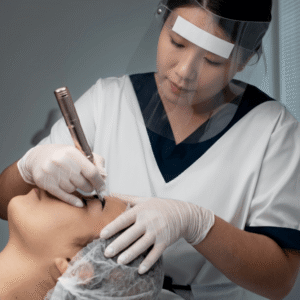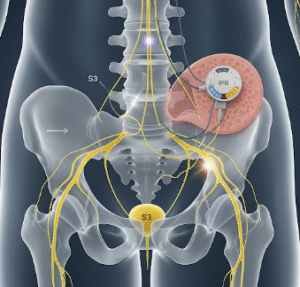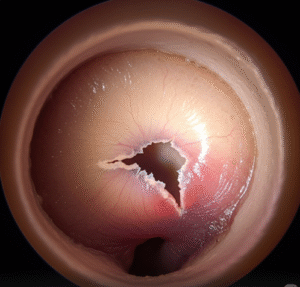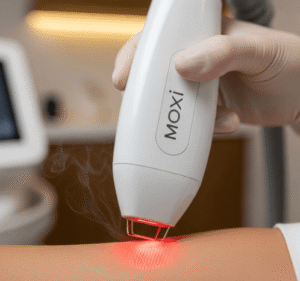Overview
Muscle weakness refers to a reduction in the strength of one or more muscles, making it difficult to perform everyday tasks such as lifting objects, walking, or standing from a seated position. It can affect a specific muscle group (localized weakness) or involve the whole body (generalized weakness). Muscle weakness is a common symptom of neurological, muscular, metabolic, or systemic conditions.
In Korea, neurology, rehabilitation, and physical medicine clinics provide comprehensive evaluation and management for muscle weakness, focusing on diagnosis, treatment, and functional rehabilitation to improve quality of life.
Key Facts
➤ Muscle weakness can be sudden or gradual in onset.
➤ May affect arms, legs, facial muscles, or the entire body.
➤ Causes range from benign fatigue to serious neurological disorders.
➤ Early evaluation is important to identify underlying conditions.
➤ Treatment in Korea may involve medication, physical therapy, and supportive care.
What is Muscle Weakness?
Muscle weakness occurs when a muscle cannot contract with its usual strength. This may result from:
➔ Neurological causes – impaired nerve signals to muscles.
➔ Muscular causes – damage or disease affecting muscle fibers.
➔ Metabolic or systemic causes – electrolyte imbalance, malnutrition, or chronic illness.
➔ Disuse or aging – natural loss of muscle mass and function.
It is important to distinguish true weakness from fatigue or lack of endurance, which may feel similar but have different causes.
Symptoms Related to Muscle Weakness
➤ Difficulty lifting objects or climbing stairs.
➤ Trouble holding or gripping items.
➤ Slurred speech, drooping eyelids, or facial asymmetry if facial muscles are affected.
➤ Reduced balance and coordination.
➤ Muscles may feel heavy, fatigued, or flaccid.
➤ In severe cases, loss of mobility or independence may occur.
Causes / Possible Causes
Muscle weakness can result from various neurological, muscular, and systemic conditions:
Neurological Causes
➤ Stroke or transient ischemic attacks affecting motor pathways.
➤ Peripheral neuropathy from diabetes, vitamin deficiency, or nerve compression.
➤ Multiple sclerosis, myasthenia gravis, or motor neuron diseases.
Muscular Causes
➤ Muscular dystrophies or inflammatory myopathies.
➤ Rhabdomyolysis or direct muscle injury.
➤ Age-related sarcopenia.
Metabolic or Systemic Causes
➤ Electrolyte imbalances (potassium, calcium, magnesium).
➤ Chronic illnesses such as thyroid disorders, kidney or liver disease, or chronic infections.
➤ Medication side effects, including statins, corticosteroids, or chemotherapy agents.
Other Contributing Factors
➤ Sedentary lifestyle leading to muscle atrophy.
➤ Malnutrition or protein deficiency.
➤ Prolonged bed rest or immobilization.
Risk Factors
➤ Older age with reduced muscle mass.
➤ Chronic neurological or muscular disorders.
➤ History of stroke or nerve injury.
➤ Inadequate nutrition or low protein intake.
➤ Sedentary lifestyle or prolonged immobilization.
➤ Certain medications affecting muscle function.
Complications
Persistent or severe muscle weakness may lead to:
➤ Loss of independence in daily activities.
➤ Falls and injuries due to impaired mobility.
➤ Progression of underlying disease if untreated.
➤ Secondary complications like pressure sores in bedridden patients.
➤ Emotional distress or anxiety due to reduced functional capacity.
When Should I See My Doctor?
Seek medical evaluation if:
➤ Weakness is sudden, progressive, or severe.
➤ Accompanied by numbness, tingling, pain, or facial asymmetry.
➤ You have underlying neurological, metabolic, or muscular disorders.
➤ Weakness affects daily activities, balance, or gait.
➤ There is unexplained muscle atrophy or persistent fatigue.
Prompt assessment helps identify treatable causes and prevent complications.
Care and Treatment
Home and Lifestyle Measures
➤ Regular physical activity and strength training to maintain muscle mass.
➤ Adequate hydration and balanced nutrition, including protein intake.
➤ Stretching and flexibility exercises to maintain range of motion.
➤ Avoid prolonged immobilization.
Medical Treatments
➤ Treat underlying conditions such as neuropathy, thyroid disease, or myopathy.
➤ Physical therapy for muscle strengthening, coordination, and balance.
➤ Medications for neuromuscular disorders or electrolyte imbalances.
➤ Occupational therapy to improve daily functioning and independence.
Supportive Measures
➤ Use of assistive devices (canes, walkers) if mobility is affected.
➤ Multidisciplinary care involving neurologists, physiatrists, and dietitians.
➤ Regular monitoring of muscle strength and functional capacity.
Treatment Options in Korea
Korean hospitals provide advanced evaluation and rehabilitation for muscle weakness:
Diagnostic Services
➤ Electromyography (EMG) and nerve conduction studies.
➤ Blood tests for electrolytes, thyroid, and nutritional status.
➤ Imaging (MRI, CT) to assess neurological or muscular pathology.
➤ Genetic testing if inherited muscular disorders are suspected.
Therapies and Supportive Care
➤ Physical therapy for strength, endurance, and balance.
➤ Occupational therapy for daily living assistance.
➤ Nutritional counseling for adequate protein and vitamins.
➤ Medications targeting neurological, metabolic, or inflammatory causes.
➤ Multidisciplinary approach for complex or chronic cases.
✅ In summary: Muscle weakness is a reduction in muscular strength that may result from neurological, muscular, metabolic, or systemic causes. Early evaluation is crucial to diagnose underlying conditions, prevent complications, and restore functional ability. In Korea, patients benefit from comprehensive diagnostic, medical, and rehabilitation services to improve muscle function and overall quality of life.













